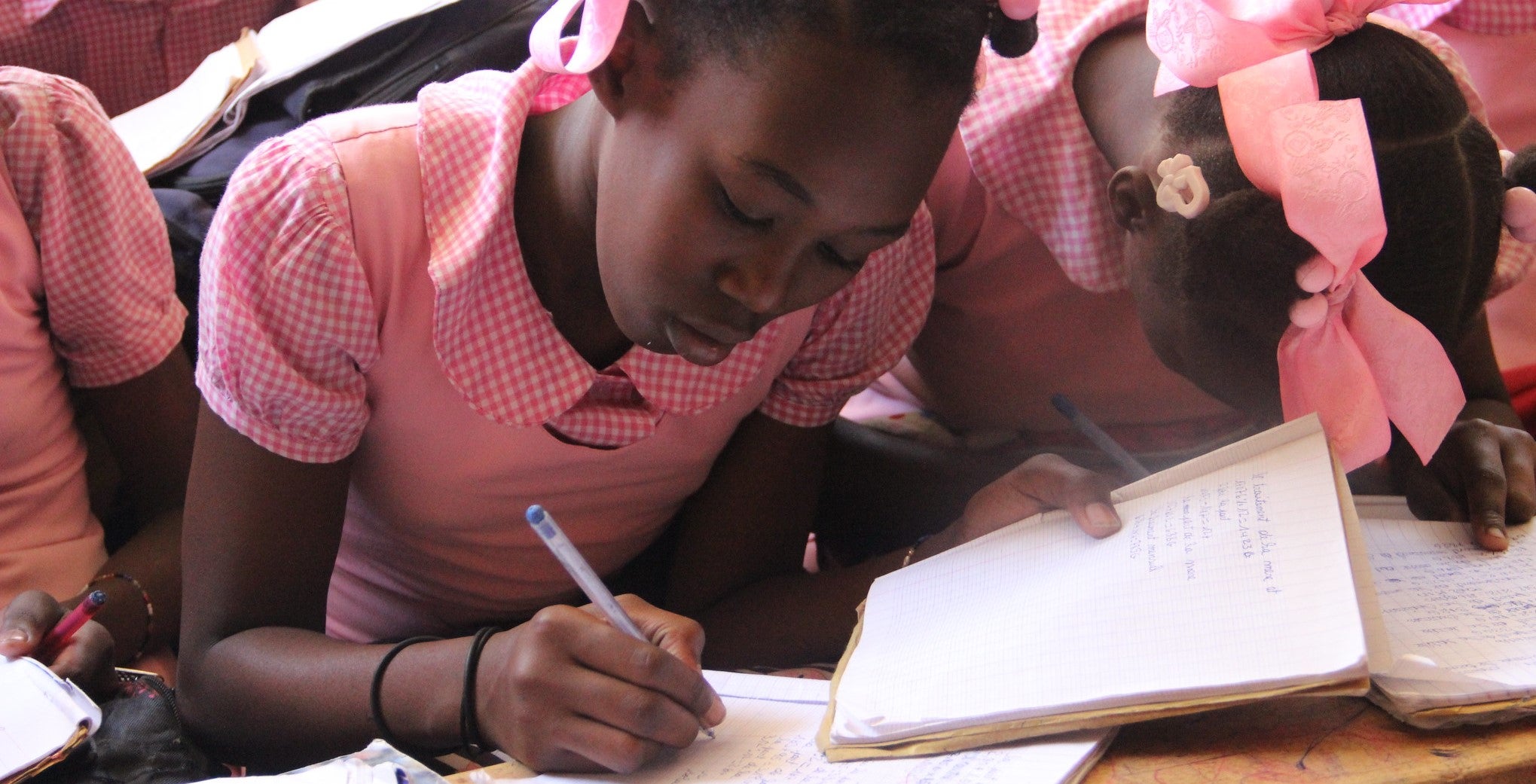 Haitian girl writing in a classroom in La Ruche Enchantee a Carrefour. Photo: World Bank
Haitian girl writing in a classroom in La Ruche Enchantee a Carrefour. Photo: World Bank
Basic learning in Latin America and the Caribbean is facing its biggest crisis in a century. Millions of boys and girls have lost years of learning because of school closures during the pandemic. About four in five children in elementary school may now not reach minimum learning skills, while learning losses could cost them a 12 percent decrease in lifetime earnings . If we want to provide them with the future they deserve, basic education must become an urgent priority.
I have personally seen the effects of the pandemic on student learning. During a recent visit to Jamaica, a teacher told me that some students in her fourth-grade class—eight- and nine-year-olds—could not read nor write, when they should be doing so by now. If you are familiar with youngsters of that age, you will know that, on average, they are capable of reading at ages six or seven. The teacher, for her part, made an effort to support her students but found it difficult to add extra classes, which is also a sign of the pandemic’s effect on teachers.
The fate of basic learning in Latin America and the Caribbean will be discussed this week at a high-level meeting in Bogota, Colombia. The event forms part of a global effort aimed at guaranteeing basic learning for all children and putting in place policies to help achieve the global goal of providing quality education for all by 2030, which, according to the UN, may not be met because of the pandemic.
Teachers and students already faced huge challenges prior to the pandemic. Education systems in Latin America and the Caribbean were already performing poorly. Less than half of the region’s children finished elementary school with the minimum skills.
The pandemic only made things worse. Schools in the region were closed for longer than elsewhere during the pandemic, with an average of 84 percent partially or fully closed, compared to 52 percent globally . Our children lost up to 1.8 learning-adjusted years of schooling. The worst part is that these losses may cost children all their lives.
Younger children and children from poorer families were among those who suffered the most. When schooling went virtual, the children of the better off could use home computers, and their parents hired tutors. Poorer children, in turn, were often sharing a mobile phone to attend classes. This situation threatens to widen the already substantial inequality seen in the region.
Moreover, these numbers only tell half the story. Vicente, a student in Panquehue, Chile, told us that online learning brought unseen costs. “Then I started feeling this sadness. It became like hell.” As we now know, mental health and well-being were greatly affected by the pandemic; they are also factors that exacerbated the learning crisis.
Following the pandemic period, we now have an initial diagnosis of what the consequences on learning looked like. And we know the cure. To recover and lay the foundations for long-term improvements, countries should prioritize basic learning in their school curricula, undertake assessments of student learning levels, and implement learning recovery programs and strategies, as well as innovative pedagogical approaches , to teach to the level of each student.
It is also critical that teachers are supported, and trained, and schools are kept safe and inclusive . These actions should be complemented by addressing the mental health needs of students and investing to give poorer students the same access to digital learning as the better off.
The meeting with ministers and experts in Bogota hopes to commit countries to not only recover learning losses but also to improve basic learning in the long run. This is the time for countries to take urgent and decisive action to ensure all children, including the most marginalized, develop the foundational learning needed to realize their full potential.
Another important goal of the meeting is to highlight best practices, of which there are many great examples. Among learning assessments are Argentina’s large-scale APRENDER initiative, as well as Chile’s DIA formative diagnostic assessment. Ecuador prioritized its curriculum during the pandemic emergency and designed an effective learning remediation program; Colombia can build on effective tutoring programs such as its Aula Global program. Several countries are undertaking curriculum reforms to strengthen foundational skills and have implemented measures to support teachers.
Basic education is essential for the jobs of the future. Let us do all we can to give today’s children the chance to lead the fulfilling adult lives they deserve.


Join the Conversation